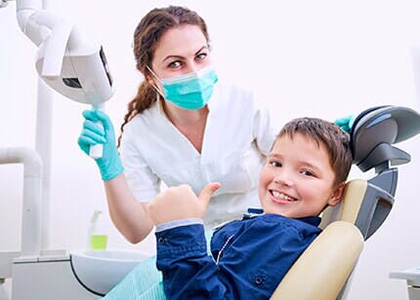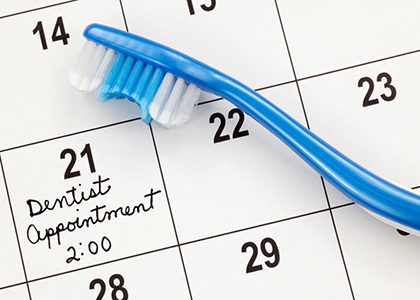Bitter Taste in Mouth? The Causes of Bad Oral Taste
Experiencing a bitter taste in the mouth can be unpleasant and often troubling, affecting many individuals. There are numerous potential causes behind a bitter taste in the mouth, including both physical and psychological factors. Understanding these causes is crucial for applying appropriate treatment and alleviating the symptom.
What Causes a Bitter Taste in the Mouth?
The development of a bitter taste in the mouth can be attributed to various factors. One of the main causes is linked to digestive issues, such as gastroesophageal reflux disease (GERD) or gallstone complications, which frequently manifest with a bitter taste. The reflux of stomach contents into the esophagus, caused by GERD, often results in a bitter taste. Additionally, complications with the gallbladder may lead to a bitter taste due to the reflux of bile acids.
Digestive Disorders
Disruptions in our digestive system can often lead to a sensation of bitterness in the mouth. Common digestive issues include GERD, where stomach contents leak back into the esophagus, creating a bitter taste. Similarly, gallstones, a digestive problem, can cause bile acids to reflux into the mouth, leaving a bitter taste.
Hormonal Changes
Hormonal fluctuations can also impact taste perception, leading to a bitter taste in the mouth. During pregnancy or menopause, hormonal levels fluctuate, often resulting in a bitter taste. These fluctuations can affect the taste buds, making them more sensitive to bitterness.
Poor Oral Hygiene
Poor oral hygiene can lead to unpleasant tastes in the mouth. If teeth are not properly cleaned, bacteria can accumulate on the teeth and tongue, resulting in an unpleasant taste. Tartar build-up can also cause bitterness, emphasizing the importance of regular dental visits for cleaning.
Medications
Certain medications may have a side effect of causing a bitter taste in the mouth. For example, antibiotics, blood pressure medications, and many other drugs can change the sensitivity of taste buds or directly affect nerve endings.
Psychological Factors
Psychological factors should not be overlooked as stress, anxiety, or depression can influence taste perception. Psychological stress can induce hormonal changes that might affect the sensitivity of taste buds, thereby causing a bitter taste.
Understanding the various causes behind a bitter taste in the mouth is crucial. It's important to observe and identify these causes to apply appropriate treatment for symptom relief. If the bitter taste persists, it is advisable to consult a professional to explore the underlying causes and appropriate treatments.
Preventing Bad Oral Taste
To prevent bad oral taste, several simple yet effective steps can be taken:
Regular Oral Care: One of the most effective ways to prevent bad oral taste is through regular and thorough oral care. It's essential to brush teeth at least twice a day with fluoride toothpaste and use dental floss. Proper oral care techniques help prevent tooth decay, gum disease, and other oral problems that contribute to bad taste.
Regular Dental Check-ups: Don't neglect regular dental check-ups. A dentist can early detect and treat gum diseases, tooth decay, or other oral problems that could cause bad taste. It's recommended to visit a dentist at least twice a year.
Proper Dietary Habits: Maintaining healthy eating habits is also crucial for preventing bad oral taste. Avoid foods and beverages that can enhance the sensation of bad taste, such as excessive sugary or fatty foods. Consuming fresh fruits and vegetables can help maintain oral hygiene and reduce the risk of unpleasant tastes.
Adequate Hydration: Consuming sufficient water helps prevent dry mouth, which often leads to bad taste. It's important to keep hydrated throughout the day to reduce the risk of dry mouth and bad taste.
Avoid Smoking and Alcohol Consumption: Both smoking and alcohol consumption can contribute to bad oral taste. Smoking can cause various health issues in the mouth, such as tooth decay, gum diseases, and bad taste. Alcohol consumption can also cause dry mouth, which increases the likelihood of bad taste.
Stress Management: Reducing stress and anxiety is important for preventing bad oral taste. Relaxation techniques, such as meditation, breathing exercises, or yoga, can help reduce stress and improve overall oral hygiene.
Maintaining healthy oral hygiene practices and a healthy lifestyle can help prevent and minimize the sensations of bad, bitter, and unpleasant tastes in the mouth. Regular dental check-ups are also essential for maintaining oral health and timely treating oral issues.
How Can a Dentist Help with Bitter Taste?
Since our establishment in 1997, we have been committed to providing your family with the highest standard of full-spectrum dental care, from toddlers to great-grandparents. Our specialists cover all areas of dentistry, making even complex treatments requiring multiple dental specialists possible on-site. Our team's professional and synchronized operation is evident throughout the entire care process—from specialist consultations to administrative tasks.
Our dental practice represents high standards in design and technical equipment. Our three-story clinic features 3 modern treatment rooms and an imaging diagnostic room (panoramic X-ray, teleradiography, CBCT, intraoral) connected by a spacious elevator, accommodating patients with mobility restrictions and those with strollers comfortably.
Book an appointment now!




















